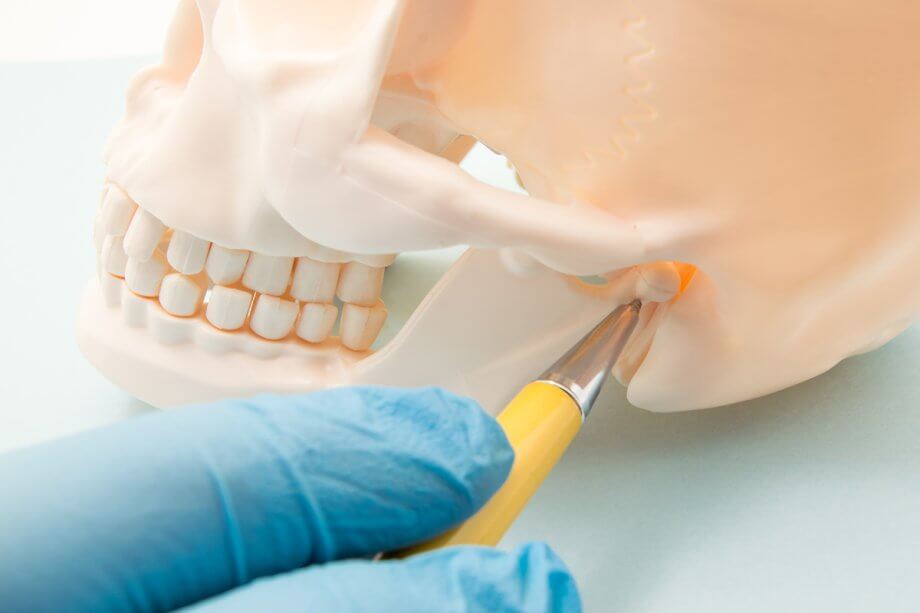TMJ disorders affect millions of people in America, making it the second most common cause of musculoskeletal pain. While some disorders of the temporomandibular joint may resolve without professional care, the majority of patients who develop this condition will need to seek treatment from a dentist. For the best chance at nipping this disorder in the bud, see a dentist for TMJ treatment as soon as any symptoms appear. Here’s what you need to know about TMJ causes, symptoms, and treatments.
What Causes TMJ?
Inflammation, degeneration, or derangement of the temporomandibular joint cause TMJ disorders. These conditions are caused by:
- Teeth grinding or clenching (bruxism)
- Arthritis in the joint (damage to the cartilage)
- Inherited/congenital structural problems in the jaw
- Injury/accident causing dislocation to the joint
Symptoms of TMJ that indicate a problem with grinding, arthritis, or a joint dislocation include:
- Clicking, popping sound when opening the mouth
- Difficulty chewing
- Pain in the face and jaw (myofascial pain)
- Sensation of jaw locking
- Headaches/migraines
- Shift in tooth alignment
- Ringing in the ears
- Dizziness
- Neck and shoulder pain
- Facial swelling
In addition, you may be told by your dentist that your teeth are unusually worn, suggesting teeth grinding. Or your partner may tell you that you’re grinding your teeth at night. If either occur, it’s best to take a look at your current level of stress. While stress does not cause TMJ, it can trigger tension and clenching while you sleep.
If you experience any of these symptoms, it’s best to see your dentist as soon as possible to prevent worsening symptoms, including damage to your teeth and the temporomandibular joint.
Non-Invasive Treatment for TMJ Disorders
Fortunately, the overwhelming majority of TMJ cases respond well to non-invasive treatments and therapies. Lifestyle modifications can resolve TMJ symptoms for some people. These modifications may include switching to a soft food diet temporarily, reducing stress through exercise and mindful meditation, and icing the jaw.
In other cases, your dentist may recommend a custom oral night guard. Night guards prevent you from grinding your teeth, thereby alleviating pressure on the joint. Your dentist may also recommend medications known as nonsteroidal anti-inflammatory drugs (NSAIDs). Common, over-the-counter NSAIDs that can reduce inflammation and discomfort include ibuprofen and Advil.
Surgery is only required for the most severe cases of TMJ, and only when all other treatment options have been exhausted.
Schedule an appointment for TMJ Treatment in San Francisco
If you are experiencing symptoms of TMJ, it’s best to see a dentist right away. Pain caused by TMJ can often be mitigated very quickly with minor adjustments to your diet, icing, or stress-relieving exercises. If your pain is caused by teeth grinding, our experienced dentists can procure the painless scans and imaging tests necessary to create a custom night guard for you. It is important to stop the damage to your teeth from grinding as soon as possible to prevent permanent damage to the enamel.
Dr. Chris Chui is the clinical director at the San Francisco VA medical center treating numerous patients with complicated TMJ cases. Book an appointment with San Francisco Dental Wellness online, or call 415-781-1944.

